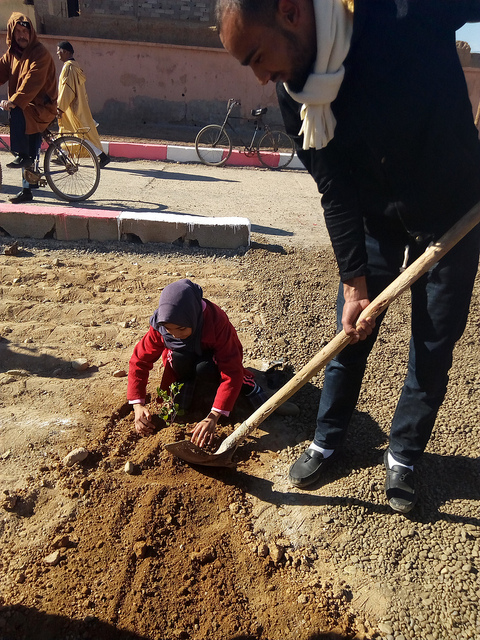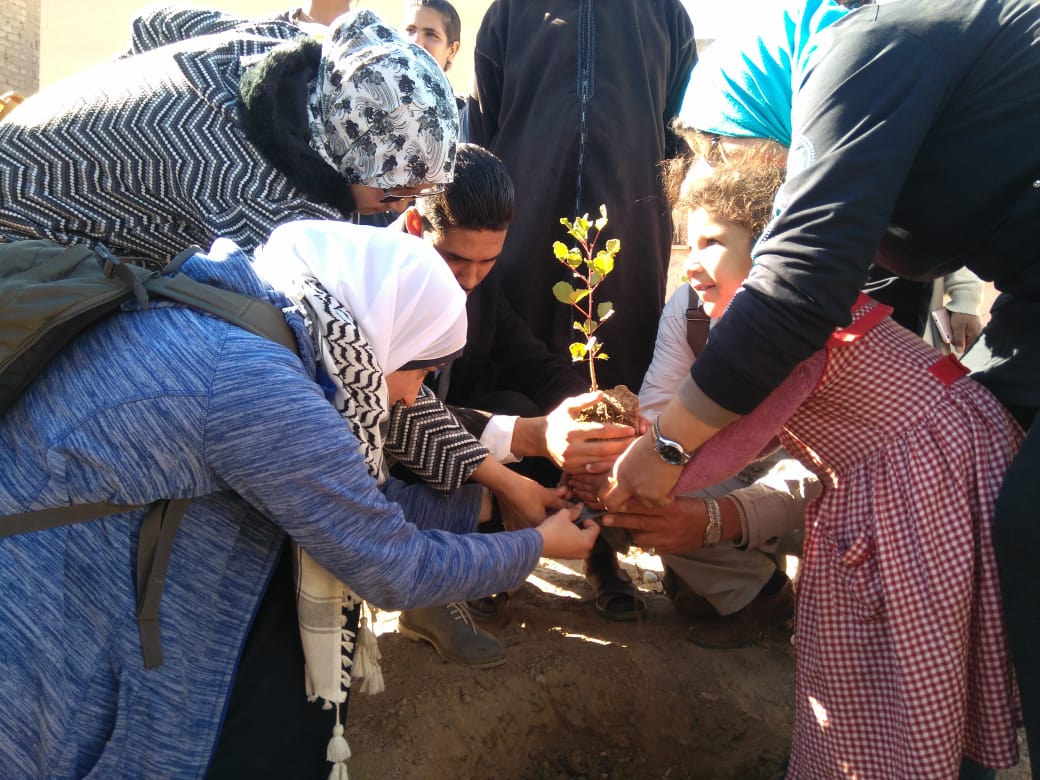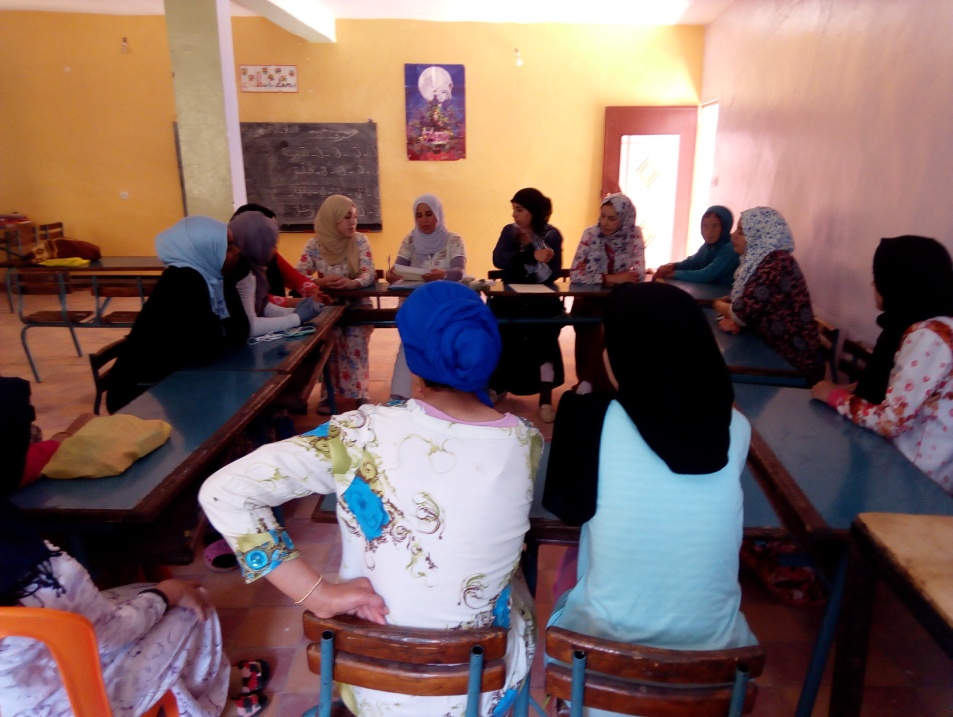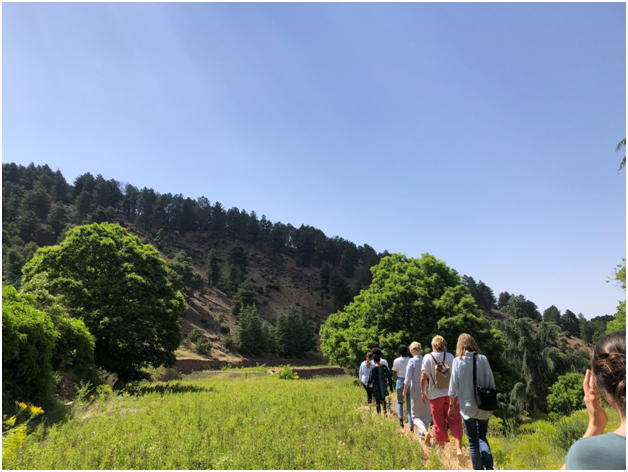by Nisreen Abo-Sido
HAF Volunteer, Thomas J. Watson Fellow

In Morocco, just 26% of girls–in contrast to 79% of boys–residing in rural areas are enrolled in primary school. Furthermore, rates of school dropout–particularly between primary and secondary school–are 15% higher for rural girls than for boys, and three times higher for rural girls compared to urban girls. In effect, the gender gap in literacy is large, and girls continue to be marginalized into womanhood.
Barriers to girls’ education are numerous. In these impoverished rural areas, the costs associated with sending children to school are too high. Schools are often far away and transportation unaffordable. Walking to school is not only time-consuming, but can be dangerous, and health risks are exacerbated when schools do not have clean drinking water or sanitation facilities. Moreover, parents are reluctant to send daughters to dormitory schools given high costs and safety concerns. Gender role expectations–including domestic work and marrying young–also keep girls from receiving their education. Taken together, families will prioritize sending their boys to school–over sending their girls.
The High Atlas Foundation (HAF) is committed to addressing the barriers to girls education on infrastructural, social, and financial levels.
Access to clean-water and toilets significantly increases girls’ education outcomes, not only by improving the health and safety of school environments, but also by removing the burden of traveling far to collect water from their responsibilities, thus, granting them the time to attend school. HAF, with its partners, has supported the construction of clean drinking water systems in rural Morocco.

The lack of access to education in girls’ lives perpetuates their marginalization into womanhood. HAF facilitates workshops and trainings in women’s empowerment to help women gain the skills, develop the confidence, and secure the resources necessary to improve their livelihoods, strengthen their autonomy, and achieve their dreams. When sharing their dreams, many participating women–most, if not all, of whom are illiterate–relate their visions to education, seeing it as the key to achieve their goals. By facilitating participatory-action workshops–such as one in Anamer village in March 2018–HAF has learned firsthand of the issues women face in the absence of receiving an education. For instance, illiteracy is a major barrier for women hoping to establish cooperatives, as they cannot perform administrative and legal requirements.
Following HAF’s women’s empowerment workshops, women frequently pledge to return to school or commit to sending their daughters back to school. At the conclusion of this particular 4-day training, a 16-year old girl–who dropped out of secondary school at age 12–volunteered to teach the women how to read. They have since begun a basic literacy program, which has grown from 10 to 40 women from this village. Moreover, the teacher has seen the students progress so quickly, that she is seeking advanced literacy training for herself!
Women’s Empowerment Facilitator, Fatima-Zahra Laaribi, noticed that at the beginning of the workshop, when the women were asked about their visions, they found it challenging to imagine. As the workshop progressed, they recognized that once education was a possibility, their dreams could be realized.

Moreover, whenever HAF invites university volunteers, such as those from the Universite Privee de Marrakech (UPM), to join environmental workshops and tree-planting events, the Foundation encourages women university students to share their paths and stories with the girl students. In particular, we ask them to share how they have been able to finance their education, as some of the UPM volunteers are on partial or full scholarships.
With HAF, the Bernard Mejean Scholarship Fund provides support to enable young females in Taza Province to pursue high school and higher education. This fund contributes to the costs of books, school supplies, and further course instruction for driven female youth, and will alleviate the financial burden of travel and enrolling in high schools or universities far from the students’ homes. The Fund was created in memory of Bernard Mejean, who was born and raised in Morocco and went on to continue his studies in the United States. Bernard’s brother, Bruno, began the scholarship to provide the tools and resources needed to underprivileged girls to achieve their dreams of pursuing higher education.
Educating girls is among the most impactful ways of breaking cycles of rural poverty and improving the wellbeing of communities. Join HAF in taking a multi-tiered approach to breaking barriers to girls’ education, and support the Bernard Mejean Scholarship Fund. By contributing to the Fund, you are empowering girls through education, bringing them closer to their dreams.







